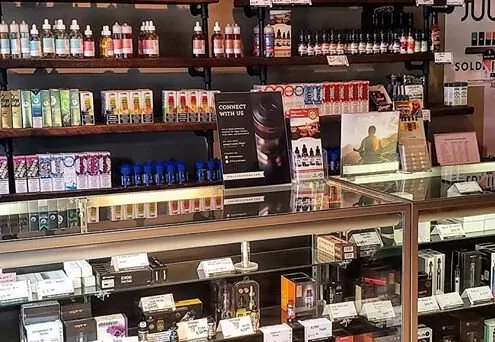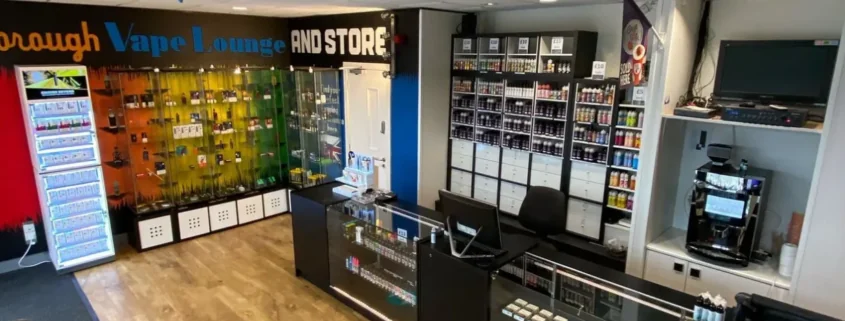How to Successfully Open and Run a Vape Lounge
The vaping industry has experienced remarkable growth over the past decade, evolving from a $1.6 billion market with 5 million users in 2013 to an impressive $5-8 billion industry boasting 20 million users by 2022. This significant expansion presents a compelling opportunity for entrepreneurs interested in entering the vaping business. However, success in this competitive market requires more than just recognizing a trend. This guide aims to provide aspiring vape lounge owners with the essential knowledge and strategies needed to establish and operate a thriving business.
Understanding the Vaping Market
Before venturing into the vaping business, it’s crucial to understand the market dynamics and your potential customers. The primary target audience for vape shops consists of current smokers looking for alternatives to traditional cigarettes. Many of these individuals have already attempted various smoking cessation methods without success. This reality underscores the importance of not just selling products, but also providing guidance and support to customers on their journey to quit smoking.
Essential Considerations Before Opening a Vape Lounge
- Personal Knowledge and Passion: Do you have a genuine interest in vaping and a deep understanding of the products? If not, are you willing to educate yourself thoroughly or hire staff with extensive vaping knowledge?
- Customer-Centric Approach: Are you prepared to offer personalized support to help customers find the right products for their needs?
- Industry Regulations: Familiarize yourself with current and potential future regulations in the vaping industry to ensure compliance and adaptability.
- Market Research: Analyze the local competition and identify gaps in the market that your business could fill.
Creating a Unique Value Proposition
To stand out in a crowded market, your vape lounge needs to offer more than just products. Consider the following strategies:
- Expert Staff: Ensure all employees are knowledgeable about vaping products, technologies, and trends. Regular training sessions can help maintain this expertise.
- Welcoming Atmosphere: Design your space to be inviting and comfortable. Remember, vaping is often viewed as a lifestyle, not just a product.
- Community Building: Host events, workshops, or classes on topics like coil building or battery safety to foster a sense of community among your customers.
- Product Diversity: Offer a wide range of high-quality products to cater to both beginners and experienced vapers.

The E-Liquid Conundrum
While many vape shops create their own e-liquid lines to increase profit margins, this strategy can be risky. In-house e-liquids often fail to meet customer expectations, potentially damaging your reputation. Instead, consider the following approaches:
- Stock Popular Brands: Offer a variety of well-known and respected e-liquid brands.
- Local Partnerships: Collaborate with reputable local e-liquid manufacturers to provide unique, high-quality options.
- Customization Station: If you decide to offer custom blends, invest in proper equipment and skilled staff to ensure consistent quality.
Operational Considerations
- Inventory Management: Maintain a well-stocked inventory without overinvesting in slow-moving products. Use a point-of-sale system to track sales and optimize your stock.
- Customer Service: Prioritize exceptional customer service. Train your staff to be patient, knowledgeable, and approachable.
- Online Presence: Develop a user-friendly website and maintain active social media profiles to engage with customers and attract new ones.
- Legal Compliance: Stay informed about local, state, and federal regulations regarding the sale of vaping products. Implement strict age verification procedures.
Marketing and Promotion
- Social Media Marketing: Leverage platforms like Instagram and Facebook to showcase products, share vaping tips, and engage with your community.
- Loyalty Programs: Implement a rewards system to encourage repeat business and foster customer loyalty.
- Collaborations: Partner with local businesses or influencers to expand your reach and credibility.
- Educational Content: Create blog posts, videos, or podcasts about vaping to establish your shop as a knowledgeable resource.
Financial Considerations
- Start-up Costs: Account for expenses such as rent, inventory, equipment, licenses, and staff salaries.
- Pricing Strategy: Set competitive prices while ensuring healthy profit margins. Consider offering bundle deals or memberships for regular customers.
- Financial Planning: Develop a detailed business plan and financial projections. Consider seeking advice from a financial advisor experienced in retail businesses.

ECIGATOR
Ecigator is one of the well-known vape brands spun off from FM Technology Co., Ltd, it’s an ISO-certified disposable vape manufacturer for OEMs, ODMs, and OBM since 2010. The founder team comes from top firms with more than 10 years of experience in the vaping industry and has devoted thousands of hours to providing users with a better and better experience.
Read more:
How to Open a E-Cigarette or Vape Shop
Conclusion
Opening a successful vape lounge requires a combination of industry knowledge, business acumen, and a genuine passion for helping people transition away from traditional smoking. By focusing on customer experience, product quality, and community building, you can create a vape lounge that not only survives but thrives in this competitive market.
Remember, the key to long-term success lies in adaptability. Stay informed about industry trends, regulatory changes, and customer preferences. Continuously seek ways to improve your offerings and services. With dedication, expertise, and a customer-first approach, your vape lounge can become a valued fixture in your local vaping community.
- HHC Vapes: What Are They & Are They Safe? - July 31, 2025
- Cannabis and Vape Shop Workers Rank Happiest in Nation - July 31, 2025
- Richmond, VA, Restricts New Vape & Tobacco Shop Locations - July 31, 2025









